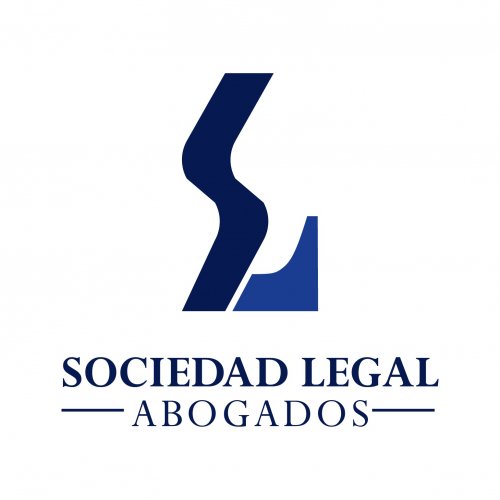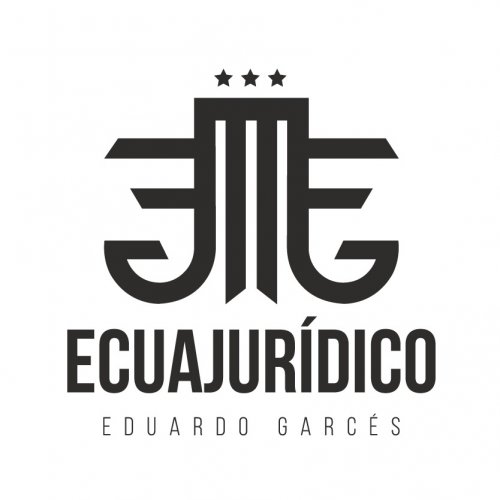Best General Litigation Lawyers in Ecuador
Share your needs with us, get contacted by law firms.
Free. Takes 2 min.
Or refine your search by selecting a city:
List of the best lawyers in Ecuador
About Litigation Law in Ecuador
Litigation in Ecuador is a legal process used to resolve disputes in court. This can involve civil, commercial, or constitutional cases. The legal framework in Ecuador is influenced by both the Spanish legal system and the Napoleonic Code, resulting in a civil law system. Litigation procedures are governed by the Código Orgánico General de Procesos (COGEP), which emphasizes procedural efficiency. The judiciary consists of various courts, including district courts, provincial courts, and the National Court of Justice for appeals and higher-profile cases.
Why You May Need a Lawyer
There are several common situations where individuals may require legal assistance in litigation. Disputes over contracts, property, business issues, family law matters, or labor conflicts often necessitate professional legal intervention. A lawyer can help you navigate complex legal procedures, represent you in court, prepare necessary documents, and advise you on legal rights and obligations. Moreover, understanding local regulations and crafting effective legal strategies usually require the expertise of a trained lawyer.
Local Laws Overview
Key aspects of litigation law in Ecuador include strict adherence to procedural formalities set out in the COGEP, which provides detailed guidelines on how cases should be filed, heard, and decided. There are also specific laws for commercial disputes such as the Código de Comercio and laws governing labor disputes outlined in the Código del Trabajo. Understanding these regulations is critical as they influence everything from deadlines to the admissibility of evidence. Additionally, Ecuadorian law also provides mechanisms for alternative dispute resolution, such as mediation and arbitration, which parties may agree to use before resorting to conventional litigation.
Frequently Asked Questions
What types of cases can be litigated in Ecuador?
Cases involving civil disputes, commercial transactions, family law, labor issues, and constitutional rights can be litigated. Some environmental and administrative cases also fall under litigation.
How long does litigation typically take in Ecuador?
The duration varies significantly depending on the complexity of the case, the court's schedule, and the specific processes involved. On average, cases can take several months to a few years to reach conclusion.
Are there alternative dispute resolution options available?
Yes, Ecuadorian law supports mediation and arbitration as alternatives to traditional litigation. These methods can be more cost-effective and faster.
What is the role of the judge in Ecuadorian litigation?
In Ecuador, judges play an active role in managing the litigation process, examining evidence, and making determinations based on the applicable laws and presented facts.
Do I need to be present in Ecuador during the litigation process?
While physical presence is beneficial for certain proceedings, power of attorney can be given to a local lawyer to represent and act on your behalf.
What costs are associated with litigation in Ecuador?
Costs can include attorney fees, court fees, and expenses for expert witnesses or additional procedural requirements. It’s advisable to discuss potential costs with your lawyer in advance.
Can foreigners initiate litigation in Ecuador?
Yes, foreigners can initiate litigation in Ecuador, though they may face additional procedural requirements such as translations of documents or proving jurisdiction.
Does Ecuador recognize foreign judgments?
Ecuador generally recognizes foreign judgments, but the enforcement process may require confirmation by an Ecuadorian court under specific conditions.
What happens if I lose a case?
If you lose a case, you may be required to cover the legal costs for the other party, and you have the option to appeal the decision within a specified time frame.
Can I represent myself in court?
Yes, you can represent yourself, but it's generally not recommended due to the complexity of legal proceedings and court protocols.
Additional Resources
For further assistance, consider reaching out to the following resources: the Ecuadorian Bar Association (Colegio de Abogados del Ecuador), the Ministerio de Justicia, Derechos Humanos y Cultos, and the Defensoría Pública. These organizations can offer valuable guidance and have resources for individuals seeking legal advice.
Next Steps
If you require legal assistance, the first step is to consult with a licensed attorney who specializes in litigation. Compile all relevant documentation related to your case to facilitate a more informed discussion. Your lawyer will explain the litigation process, potential outcomes, costs involved, and timeframes. They will also guide you on the best course of action tailored to your specific circumstances. Consider discussing alternative dispute resolution options if applicable and ensure you understand the steps involved in preparing and presenting your case effectively.
Lawzana helps you find the best lawyers and law firms in Ecuador through a curated and pre-screened list of qualified legal professionals. Our platform offers rankings and detailed profiles of attorneys and law firms, allowing you to compare based on practice areas, including General Litigation, experience, and client feedback.
Each profile includes a description of the firm's areas of practice, client reviews, team members and partners, year of establishment, spoken languages, office locations, contact information, social media presence, and any published articles or resources. Most firms on our platform speak English and are experienced in both local and international legal matters.
Get a quote from top-rated law firms in Ecuador — quickly, securely, and without unnecessary hassle.
Disclaimer:
The information provided on this page is for general informational purposes only and does not constitute legal advice. While we strive to ensure the accuracy and relevance of the content, legal information may change over time, and interpretations of the law can vary. You should always consult with a qualified legal professional for advice specific to your situation.
We disclaim all liability for actions taken or not taken based on the content of this page. If you believe any information is incorrect or outdated, please contact us, and we will review and update it where appropriate.
Browse general litigation law firms by city in Ecuador
Refine your search by selecting a city.













